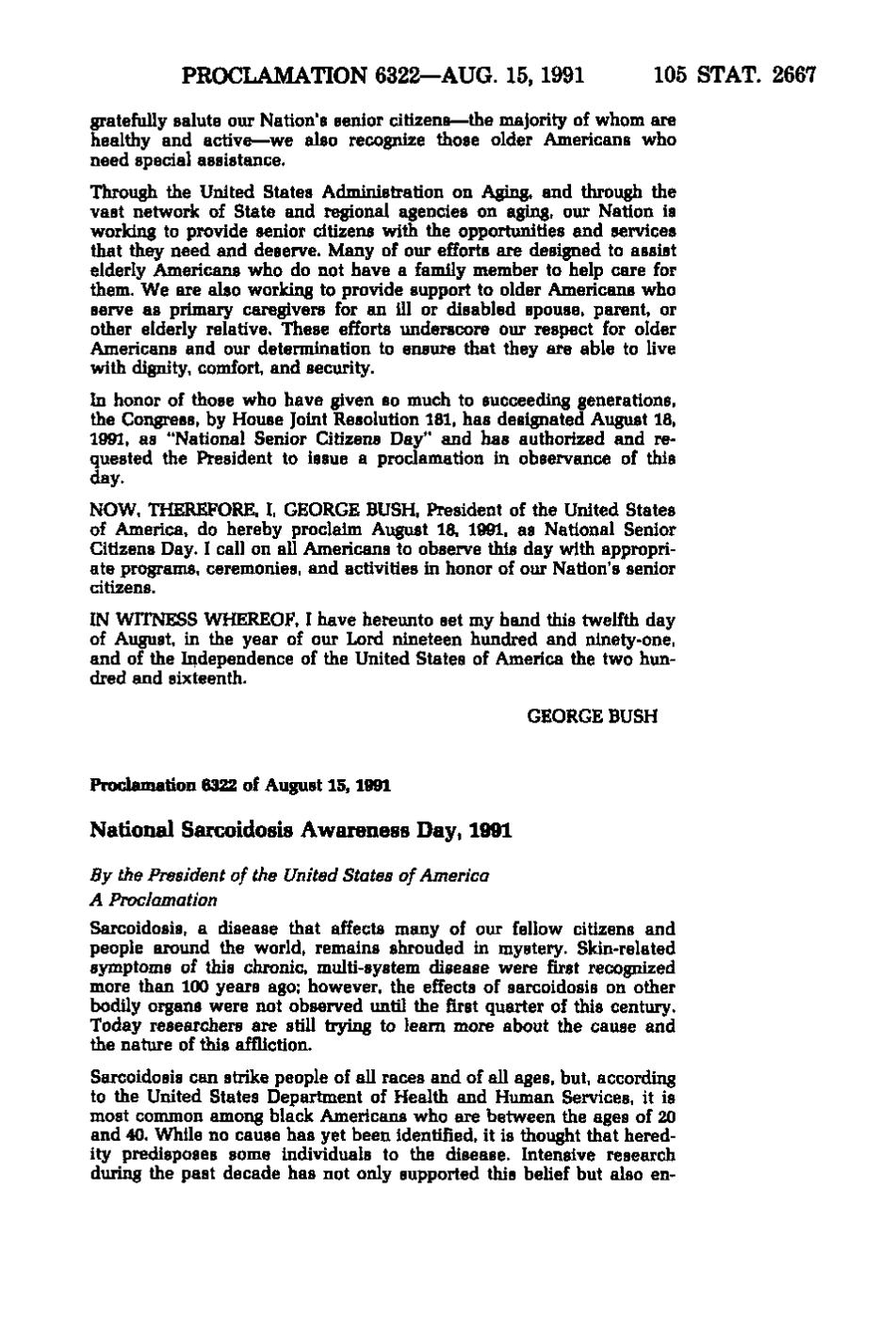PROCLAMATION 6322—AUG. 15, 1991 105 STAT. 2667 gratefully salute our Nation's senior citizens—the majority of whom are healthy and active—we also recognize those older Americans who need special assistance. Through the United States Administration on Aging, and through the vast network of State and regional agencies on aging, our Nation is working to provide senior citizens with the opportunities and services that they need and deserve. Many of om* efforts are designed to assist elderly Americans who do not have a family member to help care for them. We are also working to provide support to older Americans who serve as primary caregivers for an ill or disabled spouse, parent, or other elderly relative. These efforts underscore our respect for older Americans and our determination to ensure that they are able to live with dignity, comfort, and security. In honor of those who have given so much to succeeding generations, the Congress, by House Joint Resolution 181, has designated August 18, 1991, as "National Senior Citizens Day" and has authorized and requested the President to issue a proclamation in observance of this day. NOW, THEREFORE, I, GEORGE BUSH, President of the United States of America, do hereby proclaim August 18, 1991, as National Senior Citizens Day. I call on all Americans to observe this day with appropriate programs, ceremonies, and activities in honor of our Nation's senior citizens. IN WITNESS WHEREOF, I have hereunto set my hand this twelfth day of August, in the year of our Lord nineteen hundred and ninety-one, and of the Independence of the United States of America the two hundred and sixteenth. GEORGE BUSH Proclamation 6322 of August 15, 1991 National Sarcoidosis Awareness Day, 1991 By the President of the United States of America A Proclamation Sarcoidosis, a disease that affects many of our fellow citizens and people around the world, remains shrouded in mystery. Skin-related symptoms of this chronic, multi-system disease were first recognized more than 100 years ago; however, the effects of sarcoidosis on other bodily organs were not observed until the first quarter of this century. Today researchers are still trying to learn more about the cause and the nature of this affliction. Sarcoidosis can strike people of all races and of all ages, but, according to the United States Department of Health and Human Services, it is most common among black Americans who are between the ages of 20 and 40. While no cause has yet been identified, it is thought that heredity predisposes some individuals to the disease. Intensive research during the past decade has not only supported this belief but also en-
�
